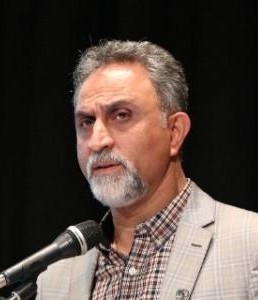Addiction Psychiatry Committee – Iran University of Medical Sciences
Faculty Members

Dr. Hamidreza Ahmadkhaniha, Professor

Dr. Ahmad Hajebi, Professor

Dr. Rouhollah Sedigh, Associate Professor

Dr. Shiva Soriya, Assistant Professor
Introduction
Various studies indicate a global increase in addiction and its severe psychological, physical, and social costs. Addiction is among the twenty diseases causing the most disability. Significant advancements in understanding addiction's prevalence, its biopsychosocial aspects, and the recognition of diagnostic, therapeutic, and rehabilitation methods necessitate a more specialized approach. Consequently, academic centers need to train professional psychiatrists in this field. Iran University of Medical Sciences, School of Medicine, Psychiatry Department, offers a full-time 3-month training program in addiction psychiatry for psychiatric residents. This program includes clinical, educational, and research components. Our faculty members are committed to the intellectual growth and emotional flourishing of our residents. Alongside clinical supervision, teaching medication interventions in addiction and non-medication interventions like cognitive-behavioral therapy for individuals, family therapy, and supportive cognitive-behavioral group therapy for addicted patients, comprehensive educational seminars, case conferences, grand rounds, and journal clubs enrich the learning process. Teaching and research are essential parts of the educational experience. Residents actively participate in planning by regularly evaluating programs, trainees, and their instructors.
Objectives
The primary goal of this section is to train psychiatrists capable of delivering preventative interventions, drug and non-drug treatments, and rehabilitation for substance use disorders and addictive behaviors, as well as conducting research and management in this field. Psychiatric residents will be able to identify cultural and ethnic diversities that play roles in treatments and their outcomes. They will also manage comorbid medical and psychiatric disorders in addicted inpatients and outpatients. This educational program assists residents in developing a comprehensive differential diagnosis and a comprehensive addiction psychiatry treatment plan based on the biopsychosocial model and multidisciplinary team opinions, and ultimately supervising the treatment plan. Residents will have the opportunity to practice other behavioral modification strategies primarily used in patients with substance use disorders and learn about the indications and applications of electroconvulsive therapy (ECT), transcranial magnetic stimulation (TMS), and other non-pharmacological treatment options in addicted patients. The addiction psychiatry training program educates psychiatric residents to recognize ethical and legal issues of patients. Critical evaluation of literature regarding methodology, biostatistics, research design and decision analysis, development of skills for electronic access to literature, and then presenting collected data in an educational format will also be a crucial part of the training.
Lecture and Seminar Program
The lecture and seminar schedule of the Addiction Psychiatry Committee is available through the following communication channel:
https://psychiatry.iums.ac.ir
Clinics
- Iran Psychiatric Hospital, Addiction Clinic
- Saturdays 9 AM to 12 PM - Dr. Hamidreza Ahmadkhaniha
- Saturdays 12 PM to 6 PM - Dr. Shiva Soriya
- Sundays 9 to 11 AM - Dr. Rouhollah Sedigh
- Tuesdays 9 to 11 AM - Addiction Patients Group Therapy - Dr. Shiva Soriya
- Wednesdays 10 AM to 12 PM - Dr. Hamidreza Ahmadkhaniha
- Wednesdays 12 PM to 4 PM - Dr. Shiva Soriya
- Thursdays 8 to 11 AM - Dr. Rouhollah Sedigh
- Phone booking for addiction clinic: 25015035, extension 3
Online booking: http://nobat.iums.ac.ir
Addiction Psychiatry Inpatient Ward
The addiction ward at Iran Psychiatric Hospital has 18 inpatient addiction beds for men in Ward 3 Men and 3 inpatient addiction beds for women.
Addiction Research Center
The Addiction Research Center is also located in this unit, actively conducting research projects related to the field of addiction.